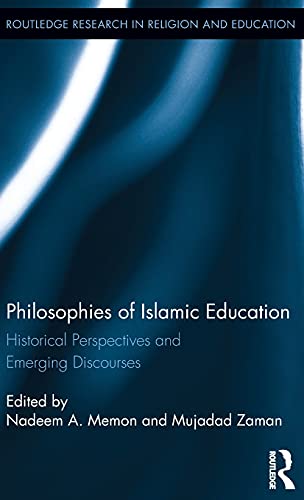Book Review: Nadeem M. Memon and Mujadad Zaman (Eds.): Philosophies of Islamic EducationDivided into four parts and fifteen chapters, Philosophies of Islamic Education: Historical Perspectives and Emerging Discourses, the fifth book in Routledge's Research in Religion and Education Series, is said to "fill a void" (p. x) in the field of studies on Islamic education by addressing theological, pedagogic, and institutional issues on the subject and by bringing diverse, sometimes competing, ideas and practices of Islamic education under discussion. It begins in a promising overview by Mujadad Zaman ("Introduction") which outlines essential issues. From among the three chapters in Part I, which attempt to lay the theoretical foundations of the field, Tim Winter's bold analysis ("Education as 'Drawing-Out'"), depicting the bleak state of education among Muslims is not only illuminating, it also reads like foretelling of a scenario now taking shape under the tutelage of "modern-Muslim ministries of education, whose determination to emulate Western models has generated the kind of alienated psyche that seems so easily to support both secularity and fundamentalism, might find grounds for sobering reflection in more recent discussions that have evolved in the Western World" (p. 36).
|
|
© Center for Islamic Sciences. All Rights Reserved.
Designed and Developed by Crescent Marketing Solutions |


